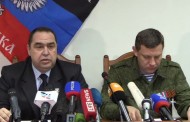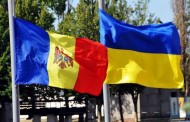Jack Matlock
Responding to the shock of the gang-style execution of Nemtsov in Moscow, Duma Deputy Ilya Ponomarev, speaking at Tufts University yesterday, said that it reminded him of the Kirov assassination, and predicted that the effect on Russian politics might be of comparable magnitude. I did not have the opportunity to question him directly about what precisely he had in mind, but I gathered from his other remarks that he believes the crime was prompted by a struggle for power within the Putin regime. After all, Stalin used the Kirov murder to launch the infamous purges that reached their height in the trials of 1938 and is widely suspected of having arranged the murder himself.
Russian politics for some time has resembled the proverbial dog fight under a rug, despite the image promoted by the regime of a seamless and efficient “vertical of power.” In some important respects, the killing of Nemtsov does not resemble the killing of Kirov. Kirov was one of Stalin’s closest associates and, in effect, his viceroy in Leningrad. Nemtsov was, on the other hand, a prominent and active oppositionist. A direct point-by-point comparison of the two murders would be absurd. Vladimir Putin does not need to arrange the murder of a prominent oppositionist in order to purge elements he considers unreliable in his own government.
Many persons at the Tufts symposium assumed, upon hearing the shocking news, that Putin himself ordered the assassination and did so as a stern warning to other would-be oppositionists. This was a natural reaction for anyone who assumes that Putin exercises the sort of total control of Russia that Stalin once did of the Soviet Union. It identifies a motivation that cannot be dismissed out of hand.
Still, there is something missing in that knee-jerk reaction. Isn’t it a goal of any authoritarian government to persuade the people it governs that it is in complete control? Does not much support of authoritarian governments come from the belief that they provide order and security? One of the reasons the Putin regime has sustained its popularity is that it brought order to the chaos of the 1990s. A contract killing of a prominent person within the shadow of the Kremlin does not comport with the image of a government in complete control.
I have received privately an analysis of the situation by an observer of the Russian scene who was in Moscow last week. I found the observations important and have been given permission to share them here.
[Begin quotation]
I do not think Putin was behind this. The reason is that a murder in the center of Moscow literally at the walls of the Kremlin discredits him and the security apparatus. The Kremlin Walls and the Bekhlimishevskaya Tower frame the scene with St. Basil’s to the right. It is simply difficult to imagine a location that could include more symbols of the Russian state. It looks like a frame up. I can’t help remembering how in the 1990′s, one way to get an adversary to capitulate in a fight over a company was to show him his security had been breached. (This is one of the reasons that Yanukovich fled when he did–because he could no longer count on the loyalty of the people providing physical protection.) This may be unfair. After all, road and pedestrian traffic are not checked in the area. Everything is filmed and there are certainly many police nearby, but no one is going to stop you if you bring arms into the area and try to murder someone. How would they know? So it may be unfair, but that’s the way it’s going to be perceived–as a highly symbolic breach of security. It’s hard for me to imagine that there won’t be personnel changes over this.
This is a serious crisis for Putin in terms of how he will be perceived by the political and security elite (who never speak to the western press and whose views and fears are almost never reflected in the West) because it is symbolic of control. He needs this crime to be solved.
State television has been covering the events with a minimum of propaganda. They have been almost complimentary about Nemtsov’s role in Russian history. People all over the political spectrum are clearly shocked. I believe it is significant that a funeral march in the center of the city was allowed quite quickly–after all the trouble the authorities when to to relocate the opposition demonstration to the outskirts of Moscow (note to the Western Mass Media: opposition demonstrations in Moscow are still permitted, including those opposing the Ukraine War–does anyone remember the USSR?).
There’s no way to know who was behind this and we’ll probably never find out (polling shows that 90% of Russians feel that the people behind the murder will never be identified).
1) Conceivably Putin could be in a position analogous to that of Gorbachev, with hardliners pushing policies that he has to go along with when presented with the fact they’ve been done. This could relate to a desire to prosecute the Ukraine war more overtly and crack down more harshly on domestic dissent. I don’t think Putin wants to run a true dictatorship, but there may be people around who think that’s a viable alternative for the country (it isn’t), so it’s just possible this was done by a faction trying to get him to go along with a harder line. This is not a likely explanation–but it’s possible.
2) A slightly more likely scenario is that ultra nationalists (with crime links and some support from inside the state) went after Nemstov (and indirectly Putin) for many of the reasons mentioned in Scenario 1.
3) A third (somewhat less likely but quite possible) scenario is that the the Ukrainian far right went after Nemtsov in hopes Putin would get blamed, western arms and money would come faster, and political disintegration might start in Russia.
No matter what happens, Putin is going to get blamed. Because even if by some miracle they catch the perpetrators (how can they not given all the surveillance mechanisms in place and the fact that Nemtsov himself was presumably being watched closely?) many people will not believe the explanation.
The people who benefit most are those who: a) want to spook/crack down on the democratic opposition; b) worsen the relationship with the West and disrupt moves toward a truce in Ukraine; c) do political damage to Putin. He needs to watch his back.
[End of quotation]
Maybe you can think of other plausible explanations. If so, please put them on the comment line. So far nothing is absolutely clear about this tragedy except that an able politician and fine man was gunned down in cold blood. The entire nation may be shaken by what happens next.




Recent Comments